 A vicious cycle occurs in the relationship between arthritis and stress. The difficulties which arise from living with chronic arthritis create stress. The stress causes muscle tension and increased pain along with worsening arthritic symptoms. The worsening symptoms lead back to more stress. Stress can produce hormone changes that lead to inflammation. Every person has a different formula for reducing stress. One person my find learning a new skill relaxing while another may find it very stressful. There is no universal formula. The University of Washington, Department of Orthopedics, lists three components of a successful stress management program… learn how to reduce stress; learn how to accept what you cannot change; and learn how to overcome the harmful effects of stress. What would help you relax? The following are ideas to get you started to live with less stress…
A vicious cycle occurs in the relationship between arthritis and stress. The difficulties which arise from living with chronic arthritis create stress. The stress causes muscle tension and increased pain along with worsening arthritic symptoms. The worsening symptoms lead back to more stress. Stress can produce hormone changes that lead to inflammation. Every person has a different formula for reducing stress. One person my find learning a new skill relaxing while another may find it very stressful. There is no universal formula. The University of Washington, Department of Orthopedics, lists three components of a successful stress management program… learn how to reduce stress; learn how to accept what you cannot change; and learn how to overcome the harmful effects of stress. What would help you relax? The following are ideas to get you started to live with less stress…
Sharing Nervous Feelings
Benefits are gained by spending time and conversing with someone whose emotional response is in line with yours. Discuss problems and concerns with a trusted friend, family member, or counselor. Being able to share worries can be a stress reliever.
Meditation
A simple, fast way to reduce stress. Meditation can wipe away the day’s stress, bringing with it inner peace. Take small breaks throughout the day to clear your mind. If stress has you anxious, tense and worried spending even a few minutes in meditation can restore your calm and inner peace.
Nutrition
Too rushed or stressed to eat well? Think again!! Good nutrition is an important stress management tool. When our bodies are poorly fed, stress takes an even greater toll on our health. Nutrition and stress are interlinked so eat a salad! A healthy diet full of dark leafy greens can improve your mood and your health.
Good Sleep Habits
Too much stress can cause you to have a bad sleep which leads to mental and physical health issues. Understanding how stress and sleep are connected is the path to getting a handle on the problem and learning how to manage stress during the day can only help improve your overall health and wellness. Adults need 7 to 9 hours of sleep each night.
Take a Vacation
You need to relax and recharge. Even just a day trip or a weekend adventure will be enough to get you away from everyday schedules so that you can relax and recharge.
Find a Hobby
Find something fun, challenging, and relaxing to take your mind off the outside world. A few suggestions…
- Journaling – Multiple studies show that keeping a journal can help reduce stress as well as symptoms of anxiety and depression. Writing down your thoughts helps you clarify your thoughts and emotions and reflect on your feelings.
- Knitting – It’s time to ditch the stereotype that knitting is just for grandmas. The repetitive movement of knitting helps bring people into the moment, much like meditation, according to Psychology Today. This enhances the release of serotonin, the feel-good neurotransmitter that helps you feel calm and positive.
- Coloring – Adult coloring books have been all the rage recently. Many studies show that art therapy is successful in reducing distress, and helps with symptoms of anxiety and depression. It allows the brain to switch off your thoughts and focus just on what you’re doing in the moment.
- Get A Pet – Spending time with a pet can be more than just leisure time. Studies show that keeping animals can reduce tension and improve mood. Having pets can help you have a sense of responsibility and also help with companionship and prevent social isolation.
- Reading – Reading will almost certainly be more relaxing than checking your social media or trying to improve your online gaming skills. Reading can be a wonderful (and healthy) escape from the stress of everyday life. Simply by opening a book, you allow yourself to be invited into a literary world that distracts you from your daily stress. Reading can even relax your body by lowering your heart rate and easing the tension in your muscles.
Too much stress can increase pain, can make a person prone to illnesses, and can make it more difficult for people with arthritis to cope with the added burdens imposed by their disease. Everyone has different interests, but trying out something new could help distract you from everyday life and help keep your stress at bay.
For persistent pain that is interfering with your daily activities, see a rheumatologist to make the correct diagnosis and begin the proper treatment.
We Treat Patients with Rheumatoid Arthritis
There are numerous medications available to treat RA. Most of these medications alter the immune system in order to stop the attack on the joints and body. Over the past few decades there have been many more medications developed to treat Rheumatoid Arthritis, and these are very effective. With treatment, remission can be achieved, and most patients will continue to lead active lifestyles.
> Learn More
Contact Us (859-331-3100) For More Information to Request an Appointment
—
 About Tristate Arthritis and Rheumatology
About Tristate Arthritis and Rheumatology
Tristate Arthritis and Rheumatology is first and largest Rheumatology practice in the Northern Kentucky area. Founded by Dr. Arthur Kunath in 1986, our rheumatology practice now consists of six doctors who are board certified in both Internal Medicine and Rheumatology and a Physician Assistant. Patients see one doctor (except in emergencies), thereby assuring continuity of care and an individualized doctor-patient atmosphere giving the physician the ability to establish personalized and detailed relationships. Our doctors have received numerous awards, including being listed as “Top Doctors” in Cincinnati Magazine, receiving the Patient’s Choice Award, the Most Compassionate Doctor Award, and the American College of Rheumatology’s “My Doc Rocks” award.
>> Learn More


